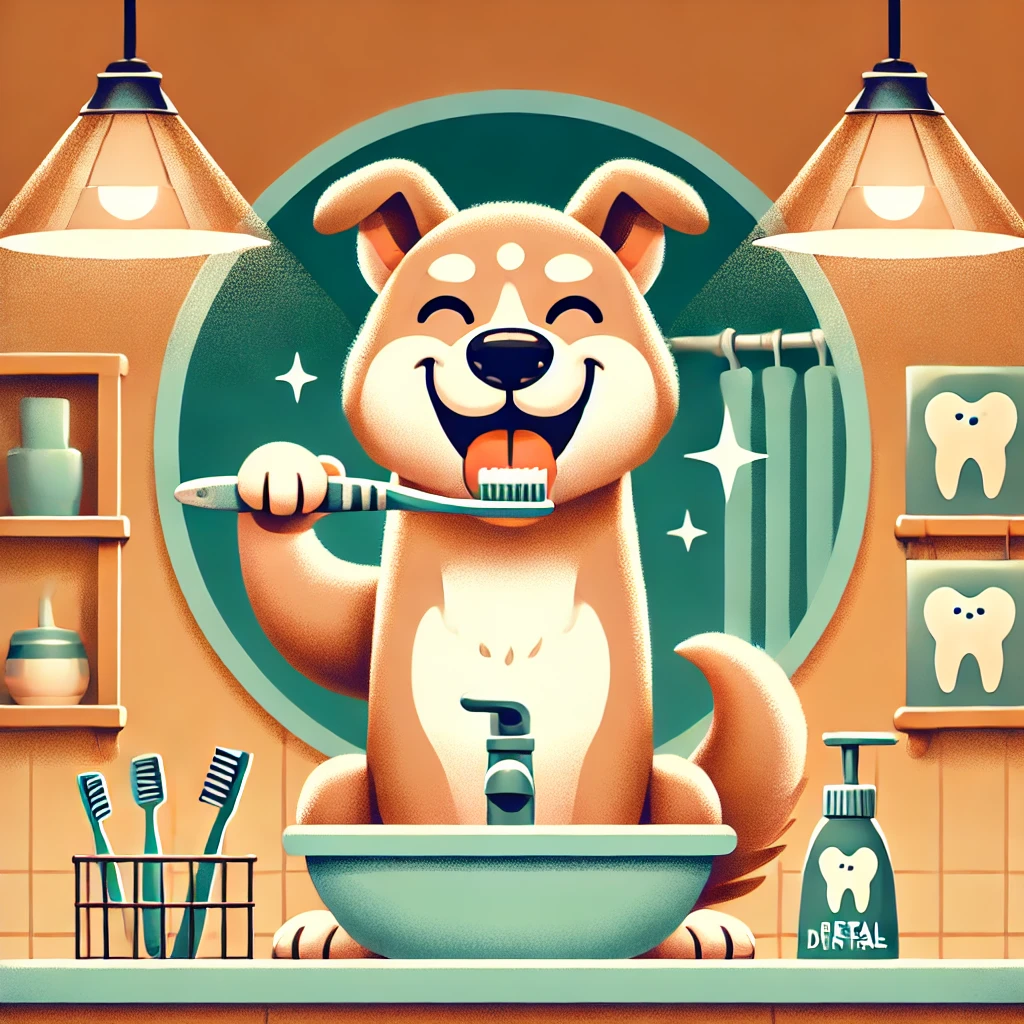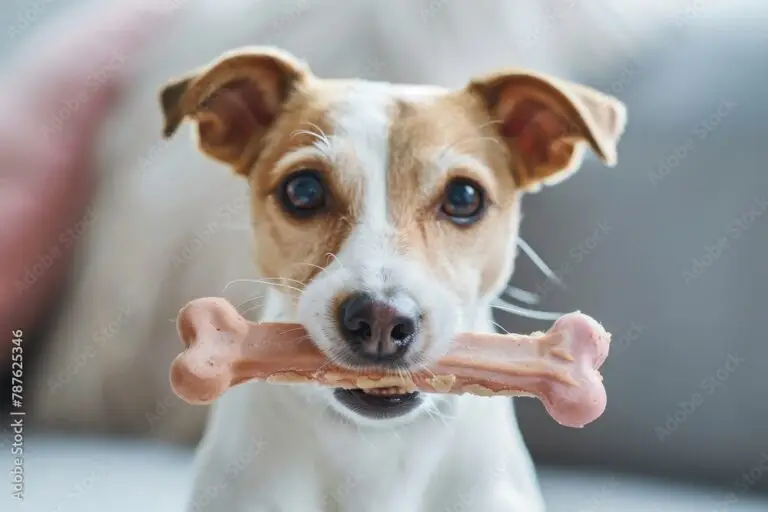The Importance of Dental Care for Your Pet’s Health
I might receive a small commission if you click on our links and make purchases. However, please keep in mind that this does not affect reviews, product comparisons, or recommendations. We try to keep things fair and balanced to help you choose your needs best. Clicking the link does not affect your total cost.
Introduction
The importance of dental care for your pet’s health cannot be overstated. Dental care isn’t just about fresh breath—it’s vital to your pet’s health. Many pet owners overlook this aspect of pet care, but studies show that dental disease affects over 80% of pets by age three! Poor dental health can lead to severe issues, from painful gums to life-threatening organ infections. In this guide, we’ll explore why dental care is essential, the risks of ignoring it, and practical ways to keep your pet’s mouth healthy so they can enjoy a longer, happier life.
Why Dental Health is Crucial for Pets
- How dental health impacts overall health
Dental health is closely tied to overall health, as infections in the mouth can lead to systemic issues affecting various organs. Bacteria from untreated dental disease can enter the bloodstream, causing heart, liver, and kidney infections. Good oral care helps prevent these complications, keeping your pet healthier and potentially extending its lifespan.
- The link between oral bacteria and disease in pets
Oral bacteria can multiply rapidly when dental hygiene is poor, leading to periodontal disease and other infections. These bacteria can then spread through the bloodstream to other organs, causing issues like endocarditis, which affects the heart’s lining and valves. Reducing oral bacteria through proper dental care can prevent these serious, often irreversible health problems.
- Early prevention benefits for pets’ health and quality of life.
Starting dental care early can prevent or reduce the severity of dental disease, making it easier to manage as pets age. Regular dental routines and professional cleanings minimize plaque buildup, reducing the likelihood of painful gum disease and tooth loss. A proactive approach saves on future vet bills and enhances your pet’s comfort and overall quality of life.
Common Dental Diseases in Pets
- Periodontal disease: The most common issue
Periodontal disease affects the structures supporting the teeth, leading to inflammation, discomfort, and eventually tooth loss. Left untreated, it can cause bacteria to spread beyond the gums, impacting overall health. Preventing periodontal disease through consistent dental care is essential for maintaining a healthy mouth and avoiding secondary infections.
- Tooth decay and cavities in pets
Certain factors, such as genetics, diet, and inadequate oral hygiene, can increase the risk of decay. Regular check-ups and a balanced diet can reduce the likelihood of tooth decay and keep your pet’s teeth strong and healthy.
- Signs of gingivitis and its progression to more severe disease
Gingivitis, marked by red and swollen gums, is an early sign of periodontal disease that can progress if untreated. As gingivitis worsens, it leads to pain, gum recession, and even bone loss in the jaw. Regular brushing and dental check-ups can help catch gingivitis early and prevent further complications.
Recognizing Signs of Poor Dental Health in Pets
- Common symptoms of dental issues in pets
Bad breath, yellow or brown buildup on teeth, and red or bleeding gums are often the first signs of dental problems in pets. Pets may also exhibit decreased interest in eating or discomfort when chewing due to dental pain. Recognizing these symptoms early allows timely intervention, preventing more severe health issues.
- Behavioral changes that may indicate dental pain
Pets suffering from dental pain may display unusual behavior, such as withdrawing from play, pawing at their mouth, or becoming irritable. These changes in behavior are often subtle but can indicate that your pet is experiencing discomfort from dental disease. Observing and addressing these signs early on can help alleviate their pain and improve their well-being.
- It is essential to have regular check-ups to catch issues early
Routine dental exams allow veterinarians to detect dental problems before they escalate, reducing the need for more invasive treatments. Regular check-ups are essential as pets age since dental disease can progress rapidly. Early intervention through professional check-ups is a proactive way to ensure long-term dental health for your pet.
At-Home Dental Care Tips for Pets
- Brushing your pet’s teeth: Why and how to start
Brushing is one of the most effective ways to remove plaque and prevent tartar buildup. Use a pet-specific toothbrush and toothpaste, and introduce brushing gradually to help your pet get accustomed to it. Brushing a few times a week can make a significant difference in maintaining your pet’s oral health.
- Alternatives for pets who resist brushing
Dental chews, water additives, and wipes are valuable alternatives that can help reduce plaque if brushing isn’t feasible. Many pets enjoy dental chews, which can naturally clean their teeth while providing a tasty treat. These alternatives aren’t as effective as brushing but still offer meaningful benefits for pets that resist toothbrushing. Check out our article on recommended dental chews here.
- Importance of choosing the right products for oral hygiene
Selecting vet-approved products ensures that your dental items are safe and effective for your pet. Avoid human toothpaste, as it often contains xylitol, which is toxic to pets. Using trusted, pet-specific products minimizes risks and maximizes the benefits of at-home dental care.
Professional Dental Cleanings and When They’re Needed
- What a professional dental cleaning involves
During a professional cleaning, vets use specialized tools to remove plaque and tartar, particularly below the gum line, where at-home care can’t reach. Pets are typically anesthetized for safety and comfort, allowing for a thorough and stress-free cleaning process. This level of cleaning is essential for preventing advanced periodontal disease and maintaining a healthy mouth.
- Benefits of regular professional cleanings for pets
Professional cleanings help remove deep-seated plaque that leads to periodontal disease, reducing the risk of tooth loss and infection risk. Regular cleanings allow the vet to monitor your pet’s dental health and identify issues early. This preventive measure can extend your pet’s life by lowering the risk of systemic health problems related to dental disease.
- Signs it may be time for a professional cleaning
Chronic bad breath, visible tartar buildup, red gums, or changes in eating habits are indicators that a professional cleaning may be needed. Ignoring these signs can lead to worsening dental issues and potential discomfort for your pet. Scheduling a cleaning at the first sign of these symptoms can prevent complications and improve your pet’s quality of life.
Diet and Nutrition’s Role in Oral Health
- Foods that support dental health in pets
Crunchy kibble and dental-specific diets help scrape off plaque and slow tartar formation. While beneficial for some pets, wet food can accelerate plaque buildup if not balanced with dry food or regular dental care. Consult your vet about how a balanced diet can benefit your pet’s oral health.
- Dental benefits of chews and treats
Dental treats and chews are designed to reduce plaque by encouraging your pet to chew, helping to clean their teeth naturally. Many dental treats are formulated with ingredients that freshen breath and fight bacteria. These treats should be given in moderation but can be valuable to an overall dental care routine.
- Nutritional deficiencies that may impact oral health
Deficiencies in essential vitamins and minerals can weaken the teeth and gums, making pets more susceptible to dental disease. Ensuring a balanced diet that includes vitamins A, C, and calcium can support strong teeth and healthy gums. Talk to your vet about your pet’s best dietary choices to support general and dental health.
The Risks of Ignoring Dental Health in Pets
- Potential for infections and systemic health issues
Ignoring dental health can lead to infections that may spread to the heart, liver, and kidneys, putting your pet at serious risk. Bacterial buildup in the mouth can enter the bloodstream, leading to life-threatening infections and other complications. Prioritizing dental care is essential to prevent these dangerous, systemic health impacts.
- Impact on quality of life for pets with dental disease
Dental disease can cause chronic pain, making it difficult for pets to eat, play, and interact comfortably. This pain can lead to stress, anxiety, and behavioral changes, negatively impacting your pet’s happiness and quality of life. Regular dental care helps keep your pet comfortable and ensures they can enjoy daily activities pain-free.
- Increased costs associated with delayed treatment
Treating advanced dental disease is often far more expensive than regular preventive care, as it may require extractions or surgery. Preventive dental care, including cleanings and check-ups, helps avoid costly procedures and addresses dental problems early. Investing in regular dental care can save you money and your pet from unnecessary discomfort in the long run.
Conclusion
Dental care is a vital aspect of pet health that is often overlooked. Maintaining regular dental hygiene routines and scheduling professional cleanings can protect your pet from pain, prevent serious health issues, and enhance their quality of life. Start small, be consistent, and consult your vet for personalized advice. With the right approach, you can ensure your pet’s teeth stay healthy, letting them enjoy every meal and playtime pain-free!







